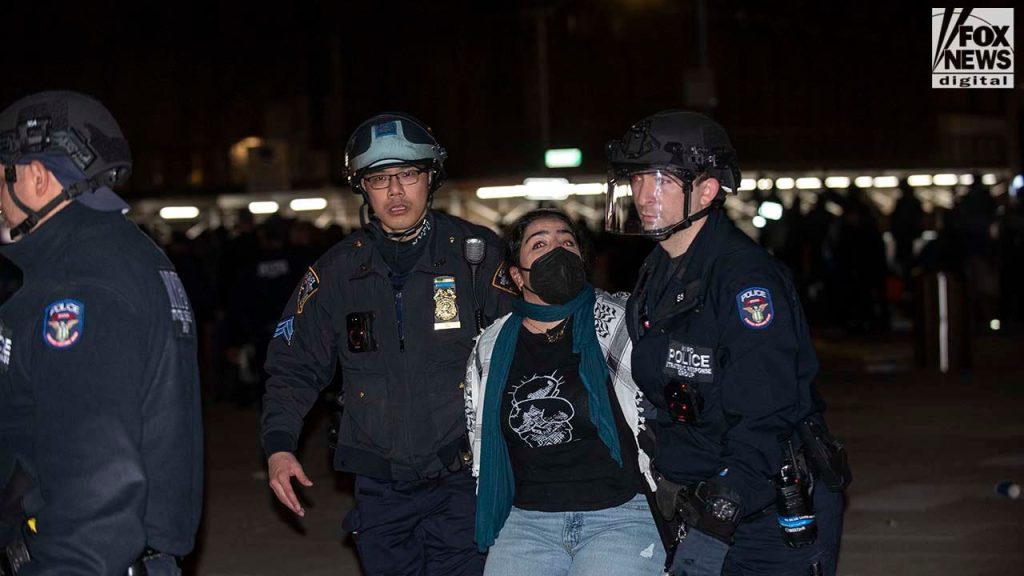Anti-Israel protesters at New York University formed a human chain on campus as police attempted to break up the demonstration. The NYPD warned students to leave the area or face arrest for trespassing, as protests against Israel’s actions in Gaza have taken hold on campuses nationwide. The protests have led to tensions among students, with pro-Palestinian groups calling for their schools to condemn Israel and divest from companies selling weapons to the country. Jewish students have expressed feeling unsafe due to what they view as rising antisemitism and have highlighted the ongoing hostage situation involving Hamas.
In response to the escalating protests, Columbia University President has ordered virtual classes, acknowledging the need for a “reset” as anti-Israel demonstrations intensify. The demonstrations have highlighted deep divisions among students, with pro-Palestinian activists calling for action against Israel while Jewish students report feeling targeted and unsafe. The protests have also included controversial chants and acts, such as stepping on Israel’s flag, which have further exacerbated tensions on campus. The ongoing situation has drawn attention to issues of free speech, antisemitism, and the complex nature of the Israel-Palestine conflict.
The protests at NYU and other campuses across the country have raised concerns about the safety and well-being of students, particularly Jewish students who have reported feeling targeted and afraid. The demonstrations, which have been marked by chants and actions that some view as promoting violence or genocide, have fueled a sense of fear and division among the student body. The issue of divestment from companies with ties to Israel has also been a central focus of the protests, highlighting the ongoing controversy surrounding Israel’s actions in Gaza and the broader conflict in the region.
The tensions at NYU and Columbia University reflect broader societal debates surrounding the Israel-Palestine conflict, free speech, and the rise of antisemitism. The protests have underscored the challenges colleges and universities face in navigating complex political issues and ensuring the safety and well-being of all students. As the demonstrations continue and tensions remain high, university administrations are being forced to grapple with how to address the competing demands and concerns of different student groups. The situation has also raised questions about the limits of free speech on campus and the responsibilities of institutions to protect all students from harassment and discrimination.
Overall, the protests at NYU and Columbia University are part of a larger trend of activism and political mobilization on college campuses across the country. The demonstrations have drawn attention to the ongoing conflict in Gaza and the complex dynamics at play in the Israel-Palestine conflict. The protests have also highlighted the challenges of creating a safe and inclusive environment for all students in the face of deep political divisions and tensions. As the situation continues to evolve, university administrators and students are grappling with how to navigate these difficult issues while upholding principles of free speech, diversity, and respect for all members of the community.


